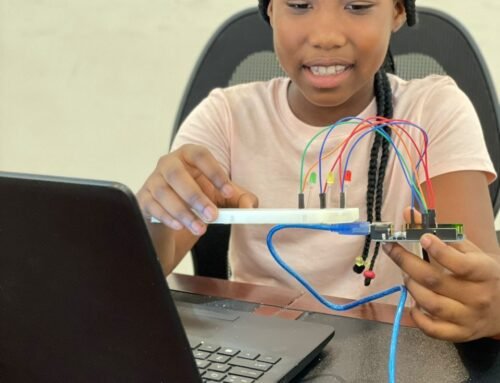
Effortless Tips for Parents to Support Their Children’s Studies
As a parent, you’re naturally concerned that your children receive the best possible education. When your child is at school, it may seem like you're giving up control of their education and that there's little you can do to help them succeed. But in this blog post, we'll show you that there are many ways you can support your child from the sidelines, no matter how involved you want to be. While your child may not always welcome your involvement, you can rest assured that you're doing everything you can to help them excel, and they'll thank you for it in the future!
1. Ask them if there’s anything they’re struggling with – and do something about it
As a parent, one of the easiest ways to help your children with their studies is by showing a genuine interest in their academic progress. Simply asking them if there are any particular topics they're struggling with can make a big difference. While it's important not to come across as overbearing, letting them know that you're there to offer support and guidance can be immensely helpful.
Suppose your child does approach you with a particular problem or difficulty. In that case, you can offer practical solutions such as hiring a private tutor, purchasing a new textbook, or arranging private lessons. These options can be advantageous if your child has missed school due to illness or personal issues affecting their academic performance.
By taking a proactive approach to your child's education, you can help them achieve better results and build their confidence in their ability to learn.
2. Encourage them to read more
Reading widely is a key characteristic of successful students, and parents can play a vital role in instilling a love of reading in their children from a young age. There are many simple ways to encourage your children to read, including taking them to the library to get their library cards, providing plenty of books at home, and giving attractive books as gifts for special occasions.
If you want to be even more proactive, you could suggest joining a book club or forming your mini-book club with your children to encourage discussion and develop their literary criticism skills. Subscribing to a newspaper and encouraging your children to read a few articles a day can also help keep them up to date with current events.
3. Stay in touch with their teachers
As a parent, it’s important to take a close interest in your child’s school by communicating with their teachers. As well as attending parents’ evenings, you could engage in constant communication with their teachers to find out what support they think your child would benefit from you giving them. From their teachers, you’ll be able to ascertain which areas your child might need additional help from you, and what form that help might take.
You could also join your child’s school Parent Teacher Association (PTA), which will keep you in touch with what’s going on in the school and get you involved in fundraising for extra facilities, events and activities from which your child will ultimately benefit. It’s a rewarding role, and as a parent, you’d have the satisfaction of knowing that you’re directly involved in helping to make your child’s school as good as it can be for them.
4. Reward them for good results
Acknowledging your children’s successes is an important part of motivating and supporting them, so you could implement a reward system for when they bring home top grades or excellent feedback. You don’t have to spend lots of money on incentives. A little bit of extra pocket money is an obvious choice, but you could also offer alternative incentives such as a cinema ticket paid for by you or letting them enjoy their favorite meal.. Just don’t go the other way – removing pocket money for bad grades – because it’s demoralizing and likely to have the opposite effect to the one you intend.
5. Get them an ASANKA
ASANKA is an electronic device connecting offline learners to free local content. The good thing about this device is it is low-cost, low-powered, and durable. Your child can enjoy any content you decide wirelessly with no internet connectivity. You can load your own content or purchase with preloaded local content & educational curriculum. This helps improve your child’s learning capabilities and academic performance.
Your child can also simultaneously use this ASANKA device with siblings or friends at home as it can support up to 30 connections without incurring internet data.
It is available via this link here.
Finally, if you’re wondering whether or not to get involved in your children’s education, take inspiration from the fact that studies have shown that children whose parents get involved in their education tend to achieve better grades, have higher self-esteem, and are better behaved at school.










